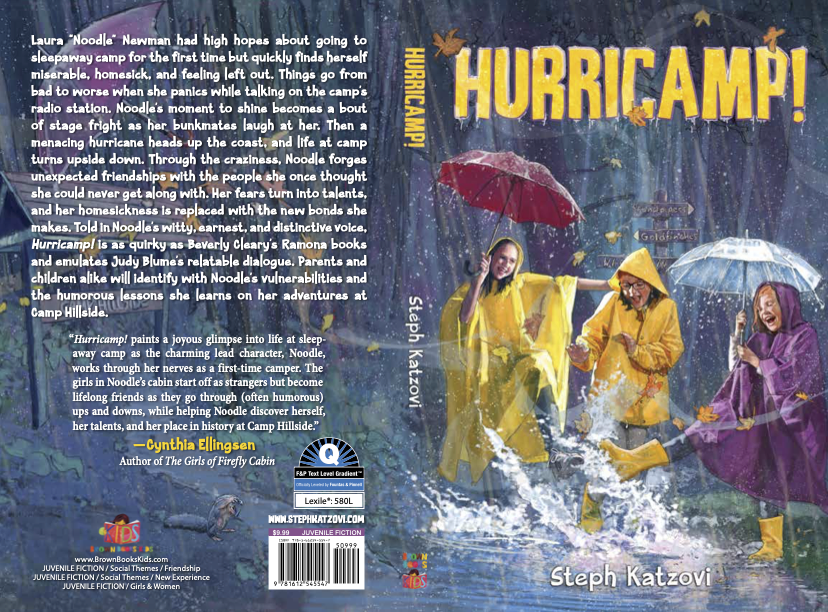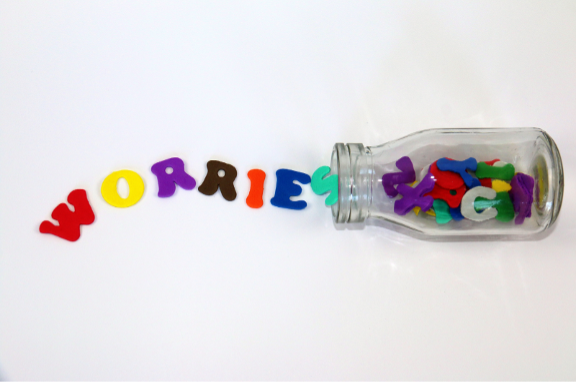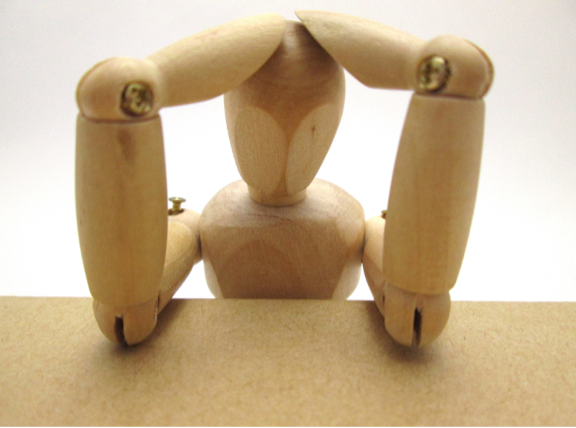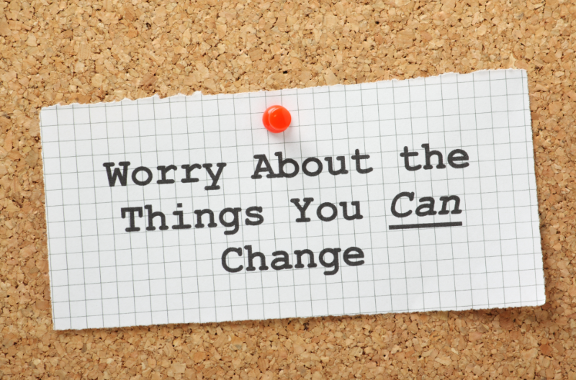Hello and welcome back!
The last few weeks have been super busy in my house. The school year is wrapping up and I’m getting ready to go back to sleepaway camp in a few weeks.
As my mom and I pack up my trunk (OK, mostly my mom), I’m not feeling as excited about sleepaway camp as I thought I would be. In fact, seeing the almost-filled bags in my room are making me a little nervous.
I thought about why I’m suddenly feeling worried. What exactly am I scared of? I realized that even though I sort of know what to expect at camp, there’s still a part of me that is afraid of the “what if’s.” What if I am in a bad bunk? What if I can’t sleep? What if I get sick? I could come up with more examples, but I’m sure you get the point.
After talking to one of my favorite teachers, Miss B—who actually worked at her sleepaway camp before she became a teacher—she gave me a great piece of advice: worrying about the unknowns can end up making you feel worse. Instead, concentrate on the “known unknowns.” In other words, the real things that you can control.
So, if you’ll humor me, I’m going to use today’s blog take Miss B’s advice. I’m going to focus on the known unknowns and see if that helps me feel less nervous.

Picture imperfect
As anyone who has read HurriCamp! (one of my all-time favorite books), you may know that I didn’t love sleepaway camp at first. I had a hard time adjusting to life without my parents and my dog, Chompers. I didn’t like the food. I didn’t like the creaky cabins. I didn’t like some of my bunk mates. I didn’t like the weather. Well, you get the picture.
In the beginning, I wasn’t trying to like camp. In fact, I was looking for ways to be more miserable. And, not to pat myself on the back, but I was pretty good at making myself miserable.
But then I realized that I was missing out. Not just on the activities, but on the friendships and a whole lot of fun. It was only when I changed the way I thought about camp that I actually started to like it. (If I’m being honest, at first, it was more like “I didn’t mind it.” Eventually, it became “I love it.”)
My teacher, Miss B, told me that feeling homesick happens to people of all ages. “It’s completely normal to miss anything that is familiar, stable, comfortable, and positive. Things that might not even be related to your actual home,” she said. “But, in camp—and in life—having a good attitude is half the battle.” Did I mention Miss B’s wisdom is one of the things that make her such a good teacher?

Home away from home
I told Miss B that a few months ago, I was super excited about going back to camp. But as I’m getting closer to leaving, I’m starting to feel scared.
“I don’t understand how I can go from happy to nervous,” I said.
“That’s natural,” Miss B had told me. “You’re in school mode now. Sleepaway camp is a change from the routine you’re comfortable with. Even though I loved every second of camp, I still got a little nervous before I went away each summer. But that’s when I would turn on my positivity juices. I focused on how to make the best out of the known unknowns.”
Miss B had a point about focusing on the known unknowns. Even though I didn’t know exactly what would happen at camp this summer, I sort of knew what would happen. And if there was something new at camp, I’m sure it wouldn’t take me long to figure things out.
But I wasn’t completely on board with known unknown concept. I still had a few more questions that would test Miss B’s “known unknowns” theory.

What if’s, and’s, or but’s
“What about friends?” I’d asked Miss B. “What if the camp doesn’t put me with my best friend? Or any friend?”
“Even if you don’t know exactly who will be in your bunk, you’ll probably have at least one friend,” Miss B said. “And if not, make sure you find someone who seems like they’d make a good friend right away. Hopefully, you’ll make a ton more friends after that.” That sort of logic made sense…but…
“Well, what if I don’t like the food this summer?” I thought this follow up question would stump Miss B.
“Instead of my answering, why don’t you try to apply the ‘known unknowns’ approach?” Miss B said. “How do you think you can work through your worries about the food?”
“Well,” I began. It took me a minute to think about how to answer my kind of negative question with a positive. Aha! “How about this: although I might not like every item that’s served, I know that the camp’s cinnamon rolls are yummy. I also love everything barbequed. And the camp always has sandwiches as a backup option.”
“There you go!” Miss B said. “You’ve listed three options that you like…although I wouldn’t recommend having the cinnamon rolls for every meal.”
Hmph. Focusing on known unknowns was a smart approach.

Positive is where I live
As I started thinking about things through the known unknowns lens, I began to feel a little better. But I still had a few nagging “what if’s” that just wouldn’t go away. What if my parents did something amazing without me while I was gone? What if my dog Chompers ran away? (OK. This one I know would never happen because Chompers is too lazy.)
I thought back to what Miss B had said about the known unknowns: Don’t focus on the things you can’t control.
I reminded myself that for the things I can control, it’s important to approach them with a positive attitude.
“Believe that you can succeed. Trust yourself and your ability to overcome challenges,” I remembered Miss B telling me earlier in the year. “You didn’t come into the world knowing everything automatically. But eventually, you figured things out. Even if some stuff took a little more time and effort than others.”
I wish Miss B was with me every time I had a problem.

Don’t worry, be happy
New experiences (and even familiar ones) can sometimes be scary. Although I might still feel worried from time to time, I know that these feelings often come in waves. It’s important to stay busy, stay positive, and remind myself that worries don’t last forever.
As Miss B said, you don’t solve problems by focusing on the things you can’t control. Thinking about the things you can change—your known unknowns—is a great way to deal with a worried brain.
If you should ever feel nervous or worried about something, I invite you to borrow Miss B’s advice. Think about your known unknowns, and how you can make the best of your situation.
Well, I’m happy to report that writing this blog has helped me feel better. I hope maybe it’s helped you too. Thanks so much for listening (err, reading).
Until next time, be your best you.
Do you have any strategies for dealing with worries? Please share your thoughts with me in the comments section.










